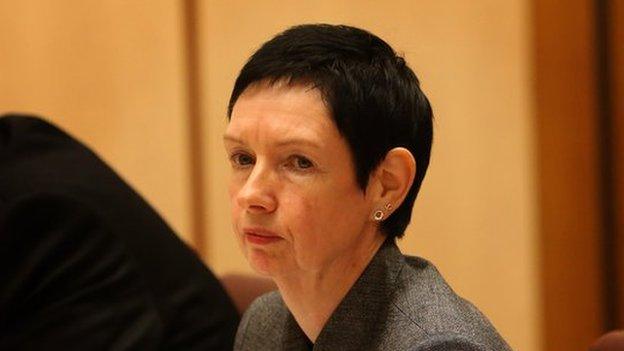MPs urge fresh start to recruitment of new Commons clerk
- Published
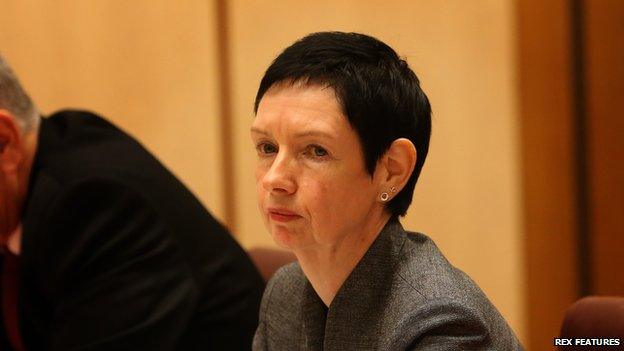
Carol Mills, who currently works in the Australian parliament, was named as the preferred candidate
MPs have said a controversial process to select a new clerk of the House of Commons should be terminated.
The process for recruiting a successor to Sir Robert Rogers was "paused" after MPs expressed concern about the choice of Carole Mills as preferred candidate.
A committee of MPs, external have now called for a new role of director general to be created, alongside that of clerk, to handle management functions.
Both posts should be re-advertised, the committee led by Jack Straw recommends.
Ms Mills, who is a senior management official in the Australian parliament, was the preferred choice of the House of Commons Commission, which is headed by Speaker John Bercow, for the historic role of Clerk.
But MPs expressed concern she did not have the right background or expertise to be Parliament's chief adviser on legal and procedural matters and urged Mr Bercow to reconsider.
'Coherent'
A special committee set up to look at the issue, headed by former Foreign Secretary Jack Straw, has recommended the current process be abandoned and the role effectively split in two.
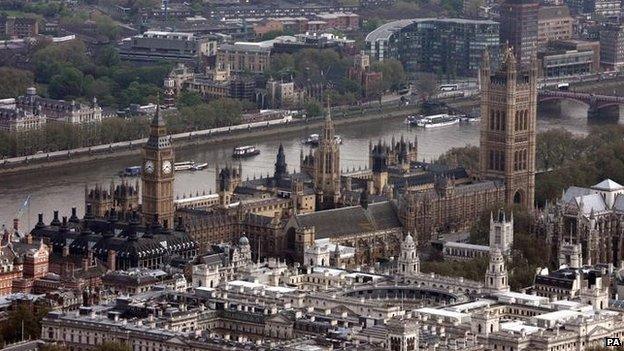
The House of Commons Service employs about 2,000 staff
BBC Parliamentary correspondent Mark D'Arcy said the committee's recommendation "seems to exclude Carol Mills" from either of the new roles.
As well as their constitutional duties, the clerk has historically also been head of the House of Commons Service - responsible for the thousands of staff working in the Commons, as well as the delivery of services and commercial contracts.
Mr Bercow has long backed splitting the two roles, although this was opposed by other members of the House of Commons Commission, which oversees the governance of the Commons.
His supporters argue that one person cannot hold both roles and that a specialist is needed for the management side of the job, particularly with Parliament requiring a multibillion pound renovation over the next decade.
Mr Straw's committee has now effectively endorsed this view, saying the clerk should remain as head of House Service but should not be chief executive and that, instead, a new role of director general, reporting to the clerk, should be created.
The director general, it says, should have "clearly delineated autonomous responsibilities for the delivery of services".
'Shared services'
Mr Straw said he hoped that the House of Commons would support its recommendations.
"Identifying the best possible governance arrangements in such a complex parliamentary environment is not easy," he said.
"Our unanimous report sets out a coherent management and strategic leadership structure.
"Taken together, our proposals provide a framework which enable the House of Commons to operate more effectively and efficiently."
Shadow leader of the House of Commons Angela Eagle, who is a member of the Commons Commission, welcomed the report.
"It is right that the role of clerk and chief executive be split, and the report contains other important recommendations for the House to consider, including on shared services and the role and composition of the House of Commons Commission," she said.
Since Sir Robert's retirement in July, deputy clerk David Natzler has served as acting clerk.
- Published10 September 2014
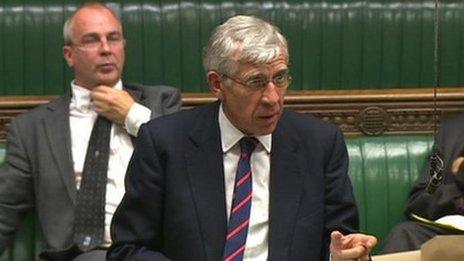
- Published1 September 2014
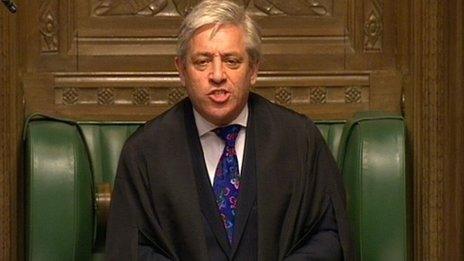
- Published1 September 2014
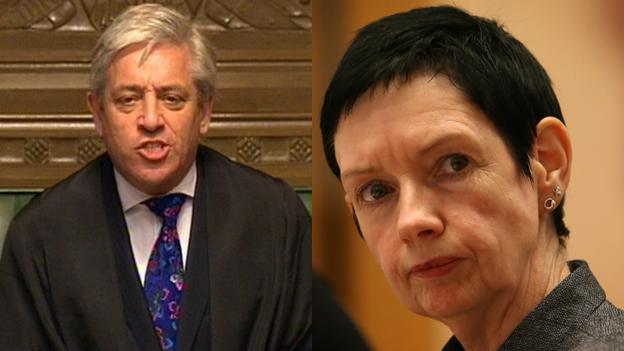
- Published31 August 2014
